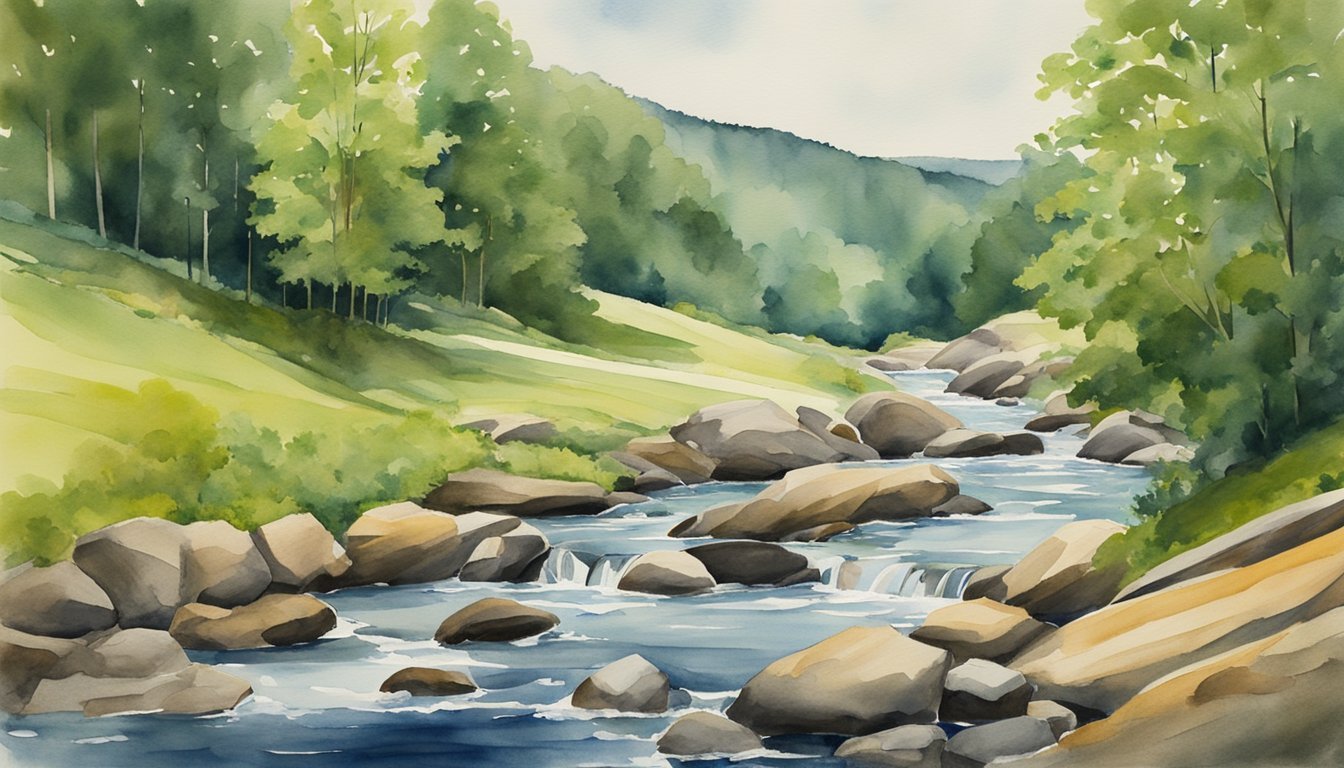Virginia’s Historical Legacy
Early Settlements and Colonial Times
Virginia, named in honor of Queen Elizabeth I, holds a significant place in American history as the location of the first permanent English settlement in the New World. Established in 1607, Jamestown was founded by settlers sent by the Virginia Company of London, led by Captain John Smith. The settlers faced numerous challenges, including conflicts with Native American tribes such as the Siouan and Iroquoian, as well as difficulties in sustaining their settlement.
Just a few miles from Jamestown, Colonial Williamsburg was founded in 1632, serving as the capital of the Virginia Colony from 1699 to 1780. It now functions as a living-history museum, showcasing the early days of English colonization.
American Revolution and Founding Fathers
Virginia played a vital role in the American Revolution, with notable Virginians such as George Washington, Thomas Jefferson, James Madison, and Patrick Henry taking center stage in the fight for independence. The state was the birthplace of eight U.S. presidents, earning it the nickname “Mother of Presidents.”
The Revolutionary War’s decisive battle took place at Yorktown, where General George Washington’s Continental Army, assisted by French forces, defeated British General Cornwallis’s troops in 1781. This victory marked the end of the war and led to the birth of the United States.
Virginia was the tenth state to join the Union on June 25, 1788, ratifying the U.S. Constitution. Thomas Jefferson, one of Virginia’s most famous residents, authored the Declaration of Independence and later served as the third U.S. President.
Civil War and Reconstruction
In the 19th century, Virginia found itself at the heart of the American Civil War. The state was nicknamed “Old Dominion” due to its status as the first English colony in North America. Richmond, which had replaced Williamsburg as the state capital, became the capital of the Confederacy in 1861.
Several important Civil War battles were fought in Virginia, such as the Battle of Petersburg, which ultimately led to the fall of the Confederate capital, Richmond. Following the end of the Civil War, Virginia struggled during the Reconstruction era, as the state sought to rebuild its economy and adapt to a post-slavery society.
The Virginia Museum of History and Culture now chronicles the complex and rich history of the state, preserving its legacy for future generations.
Geography, Demographics, and Modern Virginia

Natural Beauty and Geographic Features
Virginia, located in the southeastern part of the United States, is known for its diverse landscape that ranges from the Appalachian Mountains to the Atlantic Ocean. The state is bordered by West Virginia, Maryland, Kentucky, North Carolina, and Tennessee, covering an area of 42,774 square miles. Its geography is divided into five distinct regions, including the Appalachian Plateau, which is covered in forests and winding rivers National Geographic Kids.
Virginia is also home to the Blue Ridge Mountains, part of the larger Appalachian Mountain range. The Blue Ridge Mountains, along with the Shenandoah Valley, create stunning landscapes and offer a variety of outdoor recreational activities. The region is known for its natural beauty and houses the beautiful Shenandoah National Park, which attracts tourists for its hiking trails and picturesque views World Atlas.
Population Centers and Urban Development
The state of Virginia has a population of 8,535,519 as of 2019, making it the 12th most populous state in the United States, with an estimated annual growth rate of 0.7% Facts About Virginia. The capital, Richmond, is an important political and economic center, while other major cities include Virginia Beach, Norfolk, and Chesapeake. These cities are not only population centers but also have significant cultural and historic importance.
Virginia’s demographics are diverse, with a population density of 201.6 people per square mile, making it the 35th most densely populated state in the country U.S. Census Bureau QuickFacts: Virginia.
Economy and Culture
Virginia has a rich history and is known for being one of the original 13 English colonies in North America. Its historical sites, such as Mount Vernon and Monticello, attract tourists from around the world. The state also holds significant political importance, as it is home to the Pentagon and Arlington National Cemetery.
Virginia’s economy is diverse, including industries such as agriculture, technology, and military defense. Agriculture plays a significant role in the state’s economy, with products like tobacco, milk, and oysters being produced in large quantities. The Chesapeake Bay region is renowned for its oyster production, while the Great Dismal Swamp contributes to wildlife preservation and eco-tourism Britannica.
The state’s slogan, “Virginia is for Lovers,” highlights its friendly atmosphere and attractions for both visitors and residents. The cultural scene is diverse, with a mix of traditional Southern charm and modern urban development in the larger cities.
In summary, Virginia’s geography, demographics, and modern developments showcase a state of immense natural beauty, diverse population centers, and a thriving economy and culture that attract tourists while providing a high quality of life for its residents.

